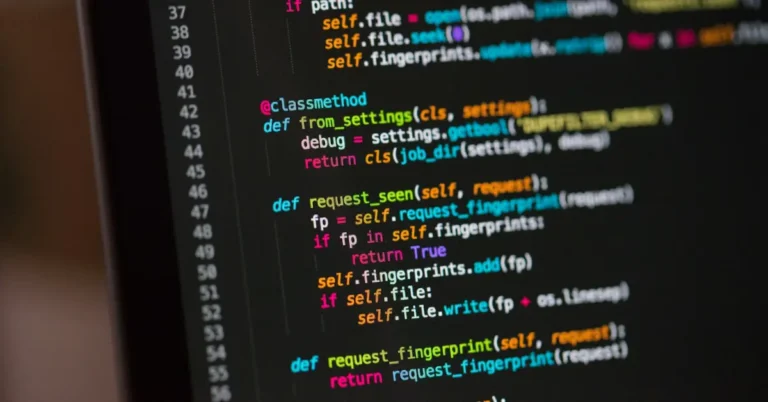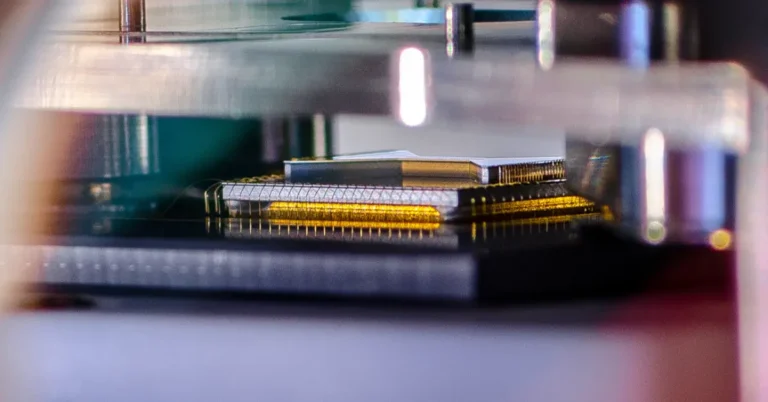Price of a quantum computer
Image Credit: IonQ
Quantum computers are no longer just theoretical concepts—they are real and advancing rapidly. Unlike classical computers, which process information in binary (0s and 1s), quantum computers leverage qubits, allowing them to perform complex calculations at unprecedented speeds. However, with cutting-edge technology comes a hefty price tag. The price of a quantum computer depends on factors such as hardware, maintenance, and research investment. But how much does it really cost? Let’s explore the numbers and see if quantum computing is within reach for businesses and researchers.
What is a Quantum Computer, and Why Are They So Expensive?
Before we dive into the price, let’s quickly define what makes quantum computers different from traditional computers. Unlike classical computers, which process information using bits (0s and 1s), quantum computers use qubits. Thanks to a phenomenon called superposition, qubits can exist in multiple states simultaneously, allowing quantum computers to solve problems at speeds unimaginable for classical computers.
However, building and maintaining a quantum computer is no easy feat. The conditions required for quantum computing—such as extreme cooling to near absolute zero and shielding from outside interference—demand highly specialized hardware and expertise. This complexity plays a huge role in the hefty price tag.
How Much Does a Quantum Computer Cost?
Let’s get straight to it: how much would it cost if you wanted to buy your own quantum computer today?
Entry-Level Quantum Computers: $5,000 – $50,000
For research institutions and universities, small-scale quantum computers can be built using basic quantum processors. Companies like IBM and Rigetti offer cloud-based access to quantum computing for researchers, with some lower-end quantum processors available for purchase. While these systems lack the power of high-end quantum computers, they provide a valuable hands-on experience for researchers and enthusiasts.
Commercial-Grade Quantum Computers: $100,000 – $10 Million
For businesses that want to experiment with quantum computing, commercial-grade systems come at a significantly higher cost. Companies like D-Wave, IonQ, and Rigetti offer systems that range from a few hundred thousand dollars to several million. These machines are designed for optimization problems, AI development, and complex simulations.
State-of-the-Art Quantum Computers: $10 Million – $100 Million+
At the cutting edge of quantum computing are the systems developed by IBM, Google, and Honeywell. IBM’s Quantum System One and Google’s Sycamore processor push the boundaries of what’s possible. These machines, with upwards of 50 to 100 qubits, are housed in specially controlled environments and can cost tens of millions of dollars. Only top-tier research institutions and government agencies have access to these systems.
Cloud-Based Quantum Computing: A More Affordable Alternative?
If owning a quantum computer sounds unrealistic, don’t worry—you don’t need to buy one to use one. Companies like IBM, Amazon, and Google offer cloud-based quantum computing services. For a fraction of the cost, businesses and researchers can rent time on quantum machines, paying per calculation or by subscription.
Why Are Quantum Computers So Expensive?
Several factors contribute to the high price of a quantum computer:
- Hardware Costs – Unlike traditional computers, quantum computers require superconducting materials, cryogenic cooling systems, and highly sensitive control electronics.
- Maintenance & Infrastructure – Quantum processors must be kept at temperatures colder than outer space, requiring advanced refrigeration and isolation.
- Research & Development – The field of quantum computing is still in its infancy, meaning companies spend billions on research to push the technology forward.
- Limited Availability – Because quantum computers are still rare, economies of scale haven’t kicked in yet to drive prices down.
Who Is Buying Quantum Computers?
Quantum computing is not just a playground for tech giants. Various industries are investing heavily in this technology:
- Pharmaceutical Companies use quantum simulations to develop new drugs.
- Financial Institutions explore quantum algorithms for risk analysis and portfolio optimization.
- Government Agencies invest in quantum cryptography and national security applications.
- Automotive and Aerospace Industries use quantum computing for materials science and logistics optimization.
The Future of Quantum Computing: Will Prices Drop?
Just like traditional computers evolved from room-sized machines to sleek laptops, quantum computers will likely become more affordable over time. As quantum computing companies refine quantum hardware and develop better error correction techniques, production costs may decrease, making quantum computing accessible to smaller businesses and researchers.
Is a Quantum Computer Worth the Investment?
For most individuals and businesses, purchasing a quantum computer outright is impractical. However, cloud-based access allows companies to experiment with quantum algorithms without the massive upfront cost. If your business involves complex problem-solving, cryptography, or AI development, dipping into quantum computing might be a game-changer.
A Final Thought: Are We Ready for a Quantum Revolution?
Quantum computers are no longer a futuristic dream—they’re here, and their capabilities are expanding rapidly. While the price of a quantum computer remains out of reach for most, cloud access and research grants are making the technology more accessible. As advancements continue, it’s only a matter of time before quantum computing reshapes industries worldwide. The real question isn’t just about cost—it’s about how soon the quantum revolution will change the way we solve problems forever.





